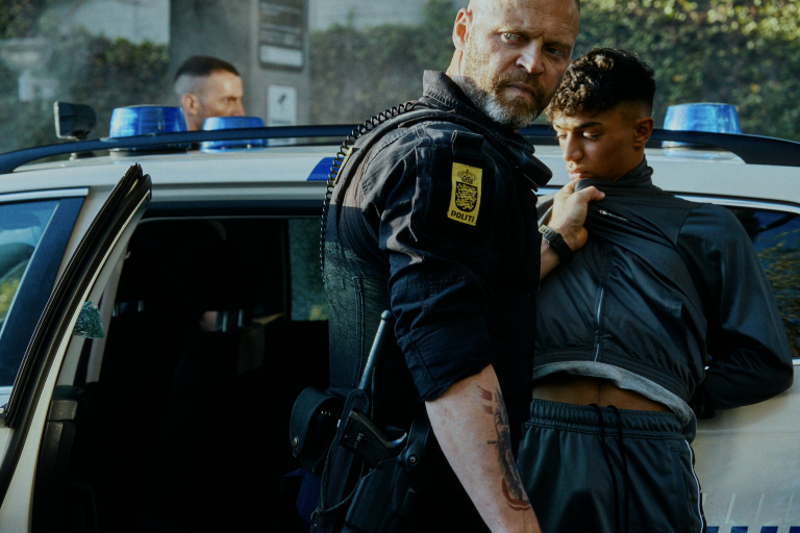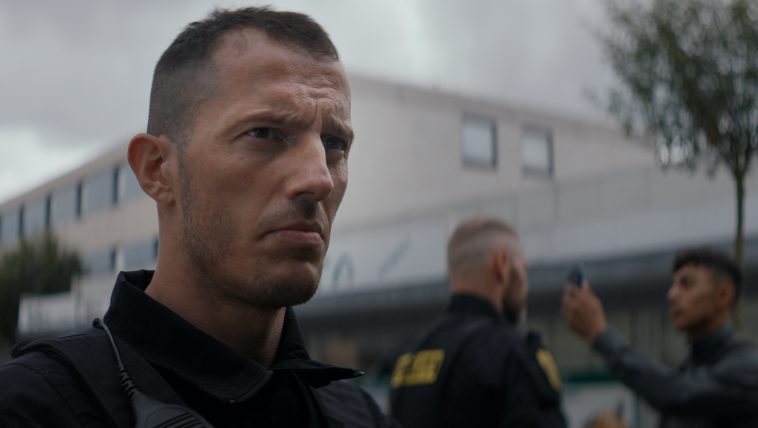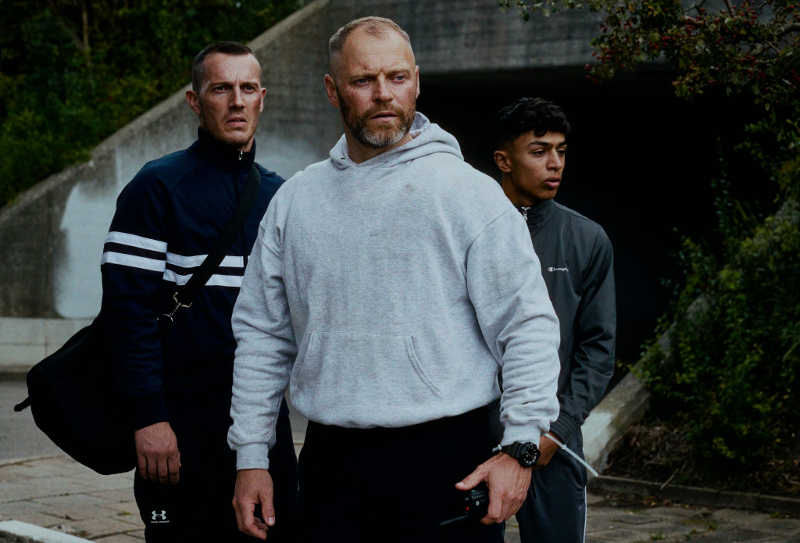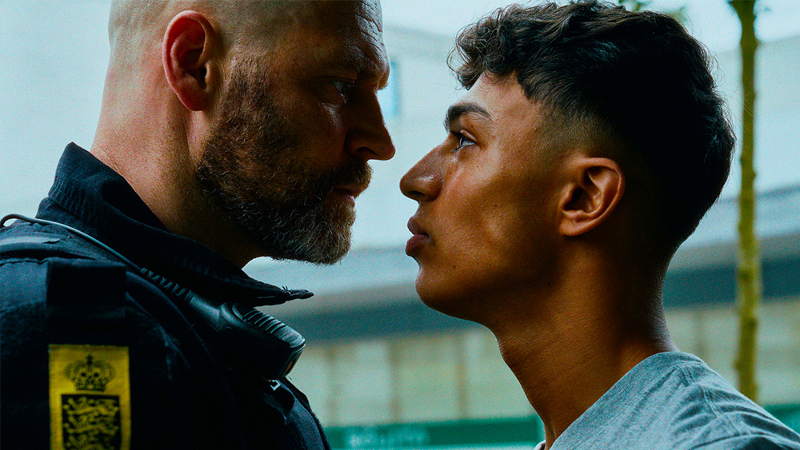Directors – Anders Ølholm, Frederik Louis Hviid – 2020 – Denmark – Cert. 15 – 108m
****
As racial tensions simmer, two white cops become trapped on a vast, no-go housing estate – out in cinemas and on digital from Friday, September 3rd
‘Shorta’ is Arabic slang for ‘police’. An Arab suspect is interrogated and beaten in a Danish police cell, resulting in his hospitalisation. The story is all over the TV news. With tensions running high, and set to run even higher should the questioned man die as seems highly likely, the police are instructed not to enter the area of Svalegarden, a vast housing estate where many Arabs live.
With two officers under investigation for the treatment of the suspect, Jens Høyer (Simon Sears) is partnered with their trigger-happy buddy Mike Andersen (Jacob Hauberg Lohmann) with instructions from the captain to keep Mike on a leash during these difficult circumstances. In the course of their eight-hour shift, they pursue a car with Arab occupants which leads them into the forbidden Svalegarden estate, where after hassling the car’s occupants and getting nowhere, Mike pulls over a teenage boy Amos (Tarak Zayat) for no reason other than the colour of his skin and the way he looks at them. He searches the boy, emptying the contents of his rucksack (and kicking them on the ground) before insisting the lad drop his trousers and looking inside the boy’s underpants. They arrest him.

Shortly after this, their car is attacked with flour, making it impossible to see anything while driving. Rocks are hurled at their windows. Pretty soon, they don’t have a car, just two conspicuous cops and a prisoner alone in hostile territory trying to get out. In a designated police no-go area.
Although the two writer-directors behind this appear to be primarily interested in constructing a good, taut, police procedural thriller – something at which their efforts succeed in spades – what’s arguably more impressive is the similarities and differences between the two cops. Mike is, not to put too fine a point on it, racist, continually commenting how force is the only language these people understand and you need to show them who’s boss. Jens, on the other hand, is much more interested in protecting ordinary people with whom he comes into contact unless they should be proven to be criminals.

For Mike, it all comes down to making the right decision in a split second – and should a cop make the wrong decision under pressure, his fellow officers should back him up. Jens, on the other hand, intends to report his colleague for the wrongful arrest of an innocent boy. Part-way through the narrative, their disagreements come to a head in a violent fight in a washroom, with the horrified Amos watching from a cubicle and wondering whether to intervene on Jens’ behalf.
When the two cops subsequently become separated, Mike finds himself being looked after by Abia (Özlem Saglanmak), a nurse who lives on the estate who, it turns out, is worried about her missing son Amos. Mike looks around Amos’ room and discovers him to have won a number of trophies. There’s no evidence of any criminal activity. In short, Mike has completely misjudged him.

The whole thing recalls John Carpenter outings Assault On Precinct 13 (1976) and Escape From New York (1981). The former for its matter of fact cops dealing with a murderous gang who are besieging the local police station in which the cops become trapped, the latter for its protagonist trapped in a specific urban area from which he needs to get out (Carpenter’s film also has various SF trappings which aren’t echoed here in any way.) Like Carpenter, Ølholm and Hviid love working with the letterboxed image and exploiting its potential to the full. As if to emphasise their admiration, they run a rhythmic piece of music over the end titles reminiscent of the scores Carpenter composes for his films (although they don’t use music in that way during the film itself).
Closer to home, the housing estate milieu with its antisocial occupants also reminded me of France’s Dheepan (Jacques Audiard, 2015) which is told from the rather different perspective of an immigrant living on such an estate. And that in turn can be traced back to La Haine (Matthieu Kassovitz, 1995).
In short, a highly effective and gritty, character-driven thriller possessed of great insight into institutionalised police racism with echoes of one or two John Carpenter movies. If you can, see it in a cinema.
Shorta is out in cinemas and on digital in the UK from Friday, September 3rd.
Trailer:
